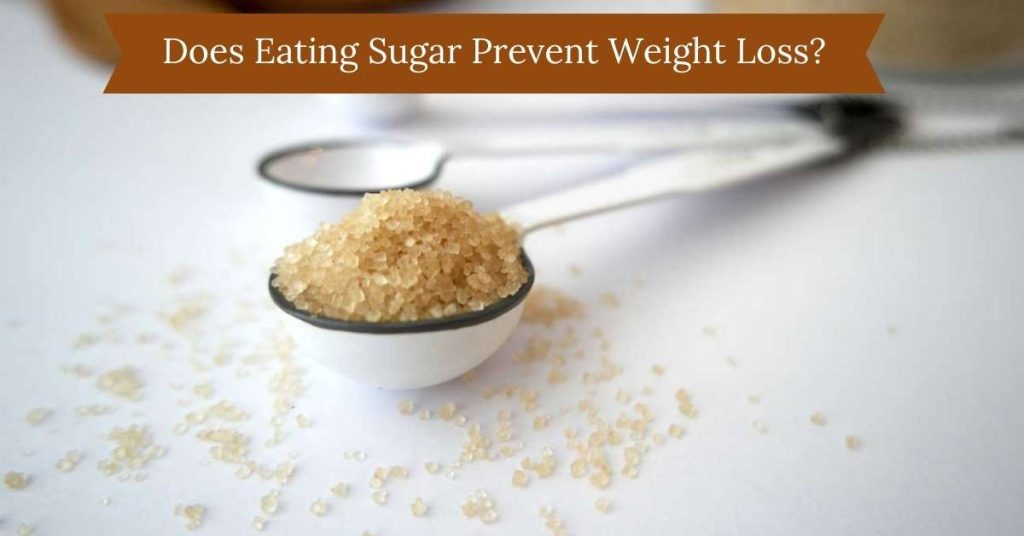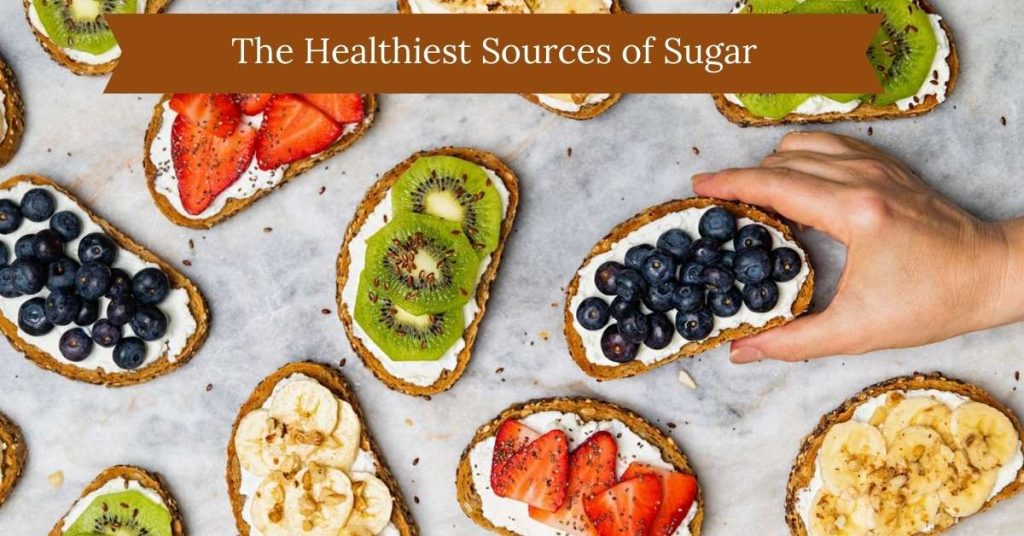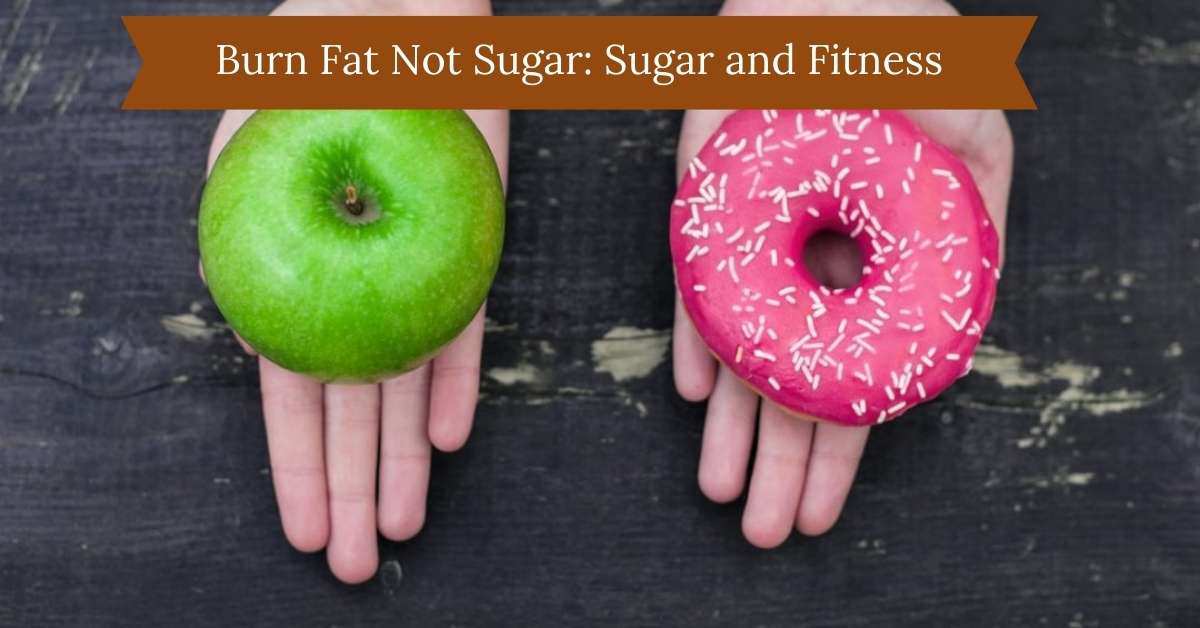Sugar is a toxin. espritmuscle.com Sugar will poison you. Sugar causes weight gain.
Do these phrases ring a bell? We’ve heard it everything, from books to TV shows to the Internet. Extreme messages, it appears, are what capture people’s attention. Perhaps it’s the “wow” element, or perhaps it’s the basic notion that eliminating one food from your diet will help you lose weight.
To be honest, eliminating an entire food group is not that straightforward. And it’s usually not the best option for your body and mind, whether you’re attempting to lose weight or not. To be honest, there are several more pieces to this dietary puzzle.
Does Eating Sugar Prevent Weight Loss?

In a nutshell, sugar will not prevent you from losing weight or fat. In truth, sugar is glucose, and glucose is our bodies’ main energy source. It is likewise derived mostly from carbs. We all require glucose in order for our organs to work properly, to have enough energy, and, yes, to burn fat.
A healthy weight requires a combination of elements, including a nutritious diet, balanced exercise, appropriate sleep, and stress management, so it’s difficult to conclude that sugar is the only thing holding back your weight loss attempts. You can get into difficulty if you consume more sugar than your body can use at once; this is when losing weight or fat becomes impossible.
Eating Excess Calories Leads To Weight Gain
In your liver and muscles, glucose is stored as glycogen. However, glycogen storage is limited, and once it is reached (by eating more calories than your body requires), any excess glucose is stored as fat.
But it’s not just carbs that contribute to these fat deposits; eating too much protein and fat will also hinder weight reduction and eventually lead to weight gain.
Watch Out For Added Sugars
All of that being said, there are some sugars — “added sugars” — that, when consumed in excess, might sabotage weight loss efforts. Added sugars are any sugars or syrups that are added to meals during processing and preparation (including the syrup you put on your pancakes for breakfast) and are commonly found in nutrient-depleted, high-calorie diets.
Sugary foods and beverages, such as cakes, pastries, and soda, are likely to be low in nutritional content. Furthermore, they are often poor in soluble fiber, a nutrient that has been scientifically demonstrated to help with weight loss.
Unsurprisingly, research shows that a high diet of added sugar is inversely related to fiber intake. When cakes, cookies, jams, and other sugary foods dominate the diet, it becomes difficult to include adequate nutrient- and fiber-rich foods (e.g., fruits, vegetables, whole grains, lean protein, nuts) without exceeding a calorie range that is good for weight reduction or maintenance.
How Much Sugar Is It Ok To Eat Daily?
So, what exactly does the phrase “in excess” mean?
According to the Dietary Guidelines for Americans, you should take no more than 10% of your daily calories from added sugars. For example, if a person consumes 2,000 calories per day, no more than 200 calories should come from added sugars.
This advise, however, is not offered because sugar induces weight gain.
After fulfilling the recommended nutrient needs from whole food groups, most people simply do not have enough calories to meet their energy (calorie) needs. In other words, if you’re attempting to eat a healthy number of calories to maintain or lose weight while also getting enough nutrients, you should only consume a tiny portion of your calories from added sugar.
The Healthiest Sources of Sugar

Sugars found naturally in milk, cheese, and unsweetened yogurt (lactose), as well as fruit, are examples of naturally occurring sugars (fructose). These sugars do not qualify as added sugars. While both lactose and fructose are sugars that are broken down into glucose, they are also high in disease-fighting elements and should not be ignored in the pursuit of a healthy weight.
In reality, the soluble fiber in fruit slows sugar metabolism, providing a constant supply of energy. Furthermore, foods containing natural sugars are naturally minimal in calories, fat, and sodium.
Refined sugar, on the other hand, enters the bloodstream quickly, causing insulin and blood sugar levels to jump (thus the phrase “sugar high,” which is frequently followed by a crash).
Always Be Aware of Portions
However, when it comes to foods with naturally occurring sugars, portion sizes are still vital, especially when aiming to achieve a healthy weight or fat loss. Men should strive for roughly 2 cups of fruit per day to meet nutrient demands, while women should aim for 1.5 to 2 cups per day. “One cup” of whole fruits includes one large banana, one medium grapefruit, or one small apple.
For other foods containing naturally occurring sugars, such as milk and yogurt, both men and women should consume around 3 cups per day to get enough calcium, vitamin D, and potassium.
A serving of hard cheese (such as cheddar cheese) is 1.5 ounces, while a serving of cottage cheese and ricotta cheese is 2 cups and 12 cup, respectively. Dairy is also high in protein, which helps you feel fuller for longer and can help you lose weight.
However, keep an eye out for any additional sugars in your morning yogurt. Instead of choosing fruit-flavored yogurt, choose plain and top with berries or sliced banana.
It’s crucial to note that these guidelines apply to people who do less than 30 minutes of exercise per day; those who are more physically active may be able to consume more while still staying within calorie restrictions.
Types of Sugar to Avoid?
The key items to limit on a daily basis are those with added sugars or refined sugars, such as soft drinks, sweets, commercial cakes, cookies, and pies, jellies, syrup, and fruit drinks. These foods are frequently high in harmful fats and “empty calories,” or calories that provide no nutritional value.
Even though your body can’t tell the difference between glucose from an apple with 80 calories and glucose from gummy worms with 80 calories, both foods are metabolized differently.
The apple has fiber as well as many other disease-fighting nutrients that slow down the fruit’s metabolism and induce a sense of satiety, which can aid in weight loss.
The gummy worms are produced with refined sugars that enter the bloodstream directly and do not produce a feeling of fullness. Furthermore, gummy worms do not contain the vitamins C and E that apples do.
Reduce or Eliminate Sweetened Drinks
Sugar-sweetened beverages, such as soda, fruit drinks, alcoholic beverages, and sports drinks, are the leading sources of added sugar in the United States. Furthermore, research demonstrate that drinking these beverages is directly associated to weight increase.
Changing at least two servings of sugar-sweetened beverages per day to water (or another non-caloric drink) has also been shown in studies to help with weight or fat loss. Furthermore, sugary drinks are less satisfying than entire foods with natural sugars, such as fruit, and might contribute to an increase in calorie intake throughout the day.
Read The Nutrition & Ingredients Label
Fortunately, the Nutrition Facts label has been revised to incorporate added sugar information in grams and as a percentage of Daily Value. This will make it much easier to determine how much sugar has been added to a product and whether it is suitable for your diet. Here’s a handy guideline to keep in mind when reading labels at the grocery store:
If a food does not contain any fruit or milk products, all of its sugar comes from added sugars.
Added sugars are frequently hidden on the ingredients label of packaged meals such as yogurt, granola bars, and cereal. Look for the following ingredients on product labels the next time you go shopping to identify added sugars:
- anhydrous dextrose
- brown sugar
- cane sugar
- corn syrup
- corn syrup solids
- dextrosefructosehigh-fructose corn syrup
- honey
- invert sugar
- lactose
- malt syrup
- maltose
- maple syrup
- molasses
- nectars
- raw sugar
- sucrose
- sugar
- white granulated sugar
- agave nectar
Keep in mind that honey is absorbed and utilised for energy in the same way that granulated sugar is, and is so classified as an added sugar.
Eat Sugar & Lose Fat: Types & Portions
To cut a long tale short, it all comes down to how much and what kind of sugar you consume. When cutting calories to reduce weight or fat, cutting back on added and processed sugars is a wonderful place to start.
This will assist you in ensuring that you are eating enough nutrient-dense meals and avoiding nutrient shortages and chronic diseases. It’s also a good idea to consult with a nutrition specialist, such as a certified dietitian, to develop a weight loss or fat loss strategy that is both mentally and physically safe.
It is crucial to note, however, that all foods can be included in a well-balanced diet. Severely restricting or removing your favorite foods (with or without sugar!) can frequently lead to other difficulties such as food obsession, binge eating, and other disordered eating behaviors.
In everyday life, consume natural sugars in fruits, vegetables, and milk products in appropriate amounts, and enjoy the occasional slice of chocolate cake at a friend’s birthday party! Enjoy it, savor it, and keep it in harmony with the rest of your day’s intake.
Sugar intake must be closely watched for anyone with Type 1 or Type 2 Diabetic, and this page should not be used in place of nutritional advise or carbohydrate intake counseling from a diabetes specialist.


